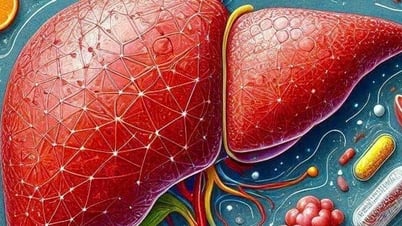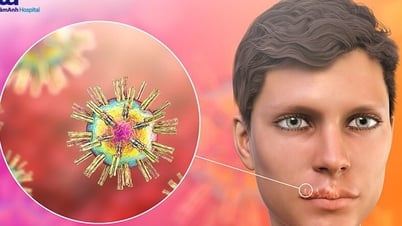 |
| People with diabetes may experience a number of complications. (Source: WHO) |
A multidisciplinary research team from Monash University (Australia) has just developed an "artificial pancreas system" using phytoglycogen nanoparticles, which helps release insulin intelligently and precisely when the body needs it.
According to research published in the scientific journal Advanced Materials , the engineered nanoparticles contain glucose (sugar)-sensitive phenylboronic acid groups and amine moieties, allowing them to efficiently combine with insulin to form nanocomplexes.
Results showed that after a single subcutaneous injection of the nanocomplex, mice with type 1 diabetes were able to maintain optimal blood sugar levels for up to 13 hours.
Current insulin therapy requires patients to monitor their blood sugar levels throughout the day and inject multiple doses that are carefully calculated based on food intake, exercise, stress levels, health status and other factors.
However, the research team believes that if the new method is applied to treat diabetic patients, patients will only need to inject twice a day.
Associate Professor Francesca Cavalieri of the Royal Melbourne Institute of Technology, co-author of the study, said the new method was not only effective but also biodegradable.
Using natural methods significantly reduces the risk of side effects or immune reactions. The team hopes to continue developing the project and moving forward to clinical trials.
The cause is usually due to unstable insulin levels in the body (can be deficient or even excessive). High blood sugar causes damage to the blood vessels and nervous system throughout the body.
Gradually, the patient may experience complications in the eyes, heart, kidneys, nerves, feet... causing blindness, kidney failure, limb amputation, stroke, and even death.
 | How to reduce the risk of Covid-19 in people with obesity and diabetes According to Japanese experts, regulating stable insulin levels in the blood of obese and diabetic patients can help reduce ... |
 | People with chronic diseases during the holidays cannot ignore these notes During long holidays, many families choose to travel , gather, party and meet friends and relatives... |
 | New discovery on the link between diabetes and herpes virus The latest research by German scientists has shown that two common Herpes viruses are directly related... |
 | Unexpected benefits from coffee A study of more than 170,000 people found that coffee provides antioxidant and anti-inflammatory benefits, which may reduce the risk of ... |
 | Eating guava helps treat diabetes and has weight loss effects. For fruits, guava is one of the reasonable choices, bringing many health benefits such as reducing ... |
Source


![[Photo] More than 17,000 candidates participate in the 2025 SPT Competency Assessment Test of Hanoi National University of Education](https://vphoto.vietnam.vn/thumb/1200x675/vietnam/resource/IMAGE/2025/5/17/e538d9a1636c407cbb211b314e6303fd)
![[Photo] Prime Minister Pham Minh Chinh chairs meeting on science and technology development](https://vphoto.vietnam.vn/thumb/1200x675/vietnam/resource/IMAGE/2025/5/17/ae80dd74c384439789b12013c738a045)



![[Photo] Readers line up to visit the photo exhibition and receive a special publication commemorating the 135th birthday of President Ho Chi Minh at Nhan Dan Newspaper](https://vphoto.vietnam.vn/thumb/1200x675/vietnam/resource/IMAGE/2025/5/17/85b3197fc6bd43e6a9ee4db15101005b)



















![[Photo] Nearly 3,000 students moved by stories about soldiers](https://vphoto.vietnam.vn/thumb/1200x675/vietnam/resource/IMAGE/2025/5/17/21da57c8241e42438b423eaa37215e0e)







































































Comment (0)